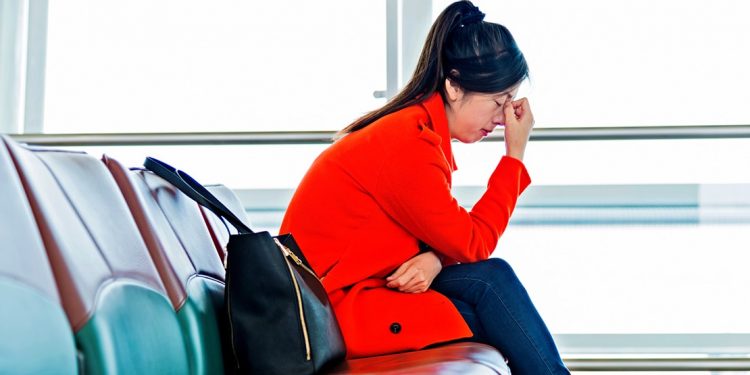
Don’t Let a Disaster Be Disastrous
A wise hobbit once said, “It’s a dangerous business… going out your door,” and he certainly knew what he was talking about.
There are all kinds of things that can go wrong when you travel. Sometimes these mishaps are your own doing, brought about by travel mistakes you made because you didn’t know any better.
Those situations are frustrating, but although they might leave you with some travel regrets, they aren’t the end of the world.
However, some mishaps are simply out of your hands, and not only lead to grief on your part but threaten to ruin your whole trip. To prevent any of the most common travel disasters from happening to you, it helps to be prepared, and to know what to do if these situations arise.
Getting Robbed
Everywhere tourists go, thieves are close behind. Involuntarily donating your belongings to someone else is a common occurrence on the road, and requires a sharp set of senses to avoid.
How to Be Prepared
The key to thwarting thieves is to keep your wits about you. Know where you are at all times (don’t wander into dodgy areas by mistake), don’t walk around with your phone in your hand, and don’t keep anything you want to keep in your back pocket.
When traveling on buses, trains or planes, keep your valuables on you at all times and never let any of your bags out of your sight.Whether walking around Barcelona or Bogota, you shouldn’t take too many valuables out and about with you.
Leave the flashy jewelry at home and only take small amounts of cash. If you’re going to take your camera, take a bag to carry it in, instead of just holding it or wearing it around your neck.
A lot of thieves are opportunistic, so they will just snatch things that are up for grabs (from their point of view). Don’t give them that chance, and avoid backpacks, which can be easily opened from behind when you aren’t looking.
Instead, wear a bag that has a strap across your body and can be zipped up safely. Just in case of theft, make photocopies of your passport and credit cards, then take photos and email them to yourself for good measure.
It is generally safer to leave your passport locked up in a safe or in your room when you are exploring a new place, so just take a photocopy with you if you think you’ll need it.
What to Do If You Get Robbed
If you do get robbed, report it to the local police as soon as possible. Then contact your travel insurance provider to find out what steps to take to make a claim.
If you have had credit/debit cards stolen, call your bank to cancel them. They’ll also be able to talk you through the steps for making a claim if any money was stolen from your accounts before you were able to block them.
If your passport was stolen, find your nearest embassy and start going through the necessary steps to get a replacement passport. If you need it urgently, be prepared to pay to have it rushed through.
Finally, find a nice bar and get yourself a drink to relax, then get back to enjoying your holiday.
Missing a Flight
So you had a few too many drinks the night before and slept through your alarm. Your flight left without you and you are stranded in the airport with a hangover and no idea what to do next.
How to Be Prepared
To avoid missing your flight you should always double check (then triple check) the time of departure. There are a lot of travelers out there who have missed flights because they thought their flight was leaving at 6 p.m. and when it was really leaving at 6 a.m.
Give yourself plenty of time to get to the airport. Better to leave too early than too late. Take into account traffic, what transport you will take to get there, and which terminal you are headed to.
What to Do If You Miss Your Flight
If you missed your flight because your connecting flight on the same ticket was delayed, it’s the airline’s responsibility to help you. The most likely scenario is that they will just pop you on the next available flight.
If you missed it because you just didn’t show up on time for whatever reason, then it’s time to slap on a smile and bring out the charm. Go to the airline’s desk and see what their staff can do for you.
Depending on the fare type you booked, you might be able to re-book your flight and be on your way in no time.
If there are change fees involved, work on your sob story and be extra nice to whoever is behind the desk — they usually have the power to waive any change fees, but they aren’t going to do that for anyone who is angry and belligerent.
What to you know about all inclusive resort tipping etiquette? Read on to learn more about tipping and what's appropriate.
Getting Sick
Whether it’s a mild cold, “Delhi belly,” or a broken limb, travelers are not impervious to illness and injury. Even though getting sick is nearly impossible to avoid, there are a few things you can do to minimize your chances of being incapacitated.
How to Be Prepared
To avoid getting sick while traveling, do all of the basic hygiene things you do at home. Wash your hands frequently and use hand sanitizer.
Pack a basic first aid kit with electrolytes and anti-diarrhea tablets, painkillers, water purification tablets and vitamins. Be careful about what you eat and drink.
Check that the water is potable before drinking from the tap, or just stick to bottled water to be safe. Use discretion when eating street food — vegetarian options are usually fine, but street meat can harbor all kinds of nasties.
Use your head when diving into adventure activities as well. Is renting a motorbike really necessary?
Be sure to always wear safety gear, and double-check what activities are covered by your travel insurance. You could be looking at a hefty medical bill if you fall off a horse and break your arm, and horseback riding isn’t covered by your policy.
What to Do If You Get Sick
If you have something more serious than just a cold, don’t wait to seek treatment. Stop at a pharmacy first: many countries will sell antibiotics or other medicines over the counter.
If you require medical attention, go to the doctor or hospital first, and worry about the cost later. It’s often not as expensive as you think it will be, and it might not even be worth filing a travel insurance claim for.
If it is expensive, then you will be glad you’re covered by a good travel insurance policy.
Lost Luggage
Entrusting your bag to the care of an airline can be nerve-wracking. Spending a week in the same set of clothes is no one’s idea of a dream vacation.
How to Be Prepared
To avoid losing your bags, one of the best methods is to travel with carry-on luggage only. That way, you never have to let your bag out of your sight.
If you simply can’t squeeze a whole vacation’s worth of clothes, accessories and toiletries into one small bag, pack as if the worst is going to happen. Assume that your checked bag will not be waiting for you when you step off the plane, and consider what you would need with you to survive for a few days while you wait to get it back.
Pack all of your important documents in your carry-on, at least one change of clothes and your toothbrush.
Always carry your credit cards and any cash on your person. If you have any valuables or delicate items, they are better off in your carry-on as well (think jewelry, electronics and important medication).
Keep a note of the address where you will be staying, so you can supply it to the airline if they need to deliver your bag later.
To prepare for the absolute worst case scenario, take photos of your bag and its contents. That way you will have proof for your insurance claim, should your bag disappear into the twilight zone, never to be seen again.
What to Do If Your Bag Doesn’t Appear on the Carousel
Let the airline know. Report the lost bag and file a claim, then keep a tight hold on your file number.
Make sure you get clear information about how and when your bag will be delivered, and how you can track its progress. Some airlines will have a way to do this via their websites, or you can contact them through social media for updates.
Find out if you are eligible for any compensation from the airline or your travel insurance provider.
Then hope and pray your bag gets back to you safely.
